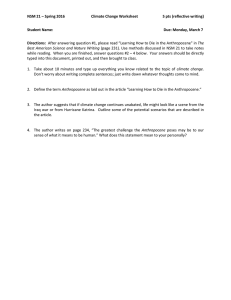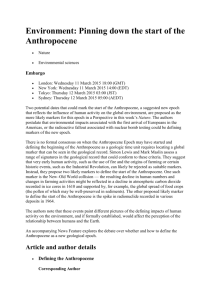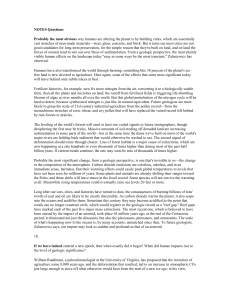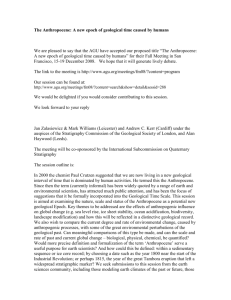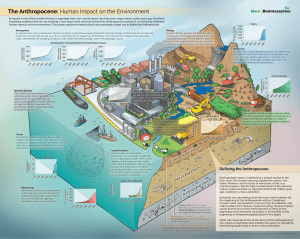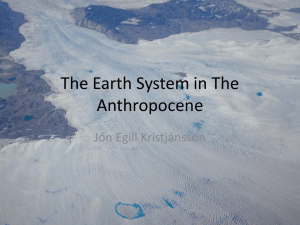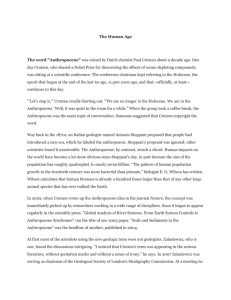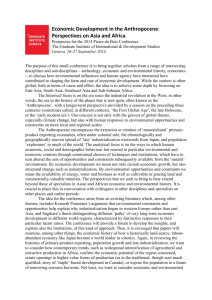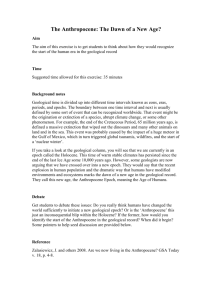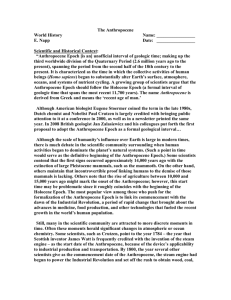BI 314 Evolutionary Ecology Practical ESSAY. Concept of Anthropocene
advertisement
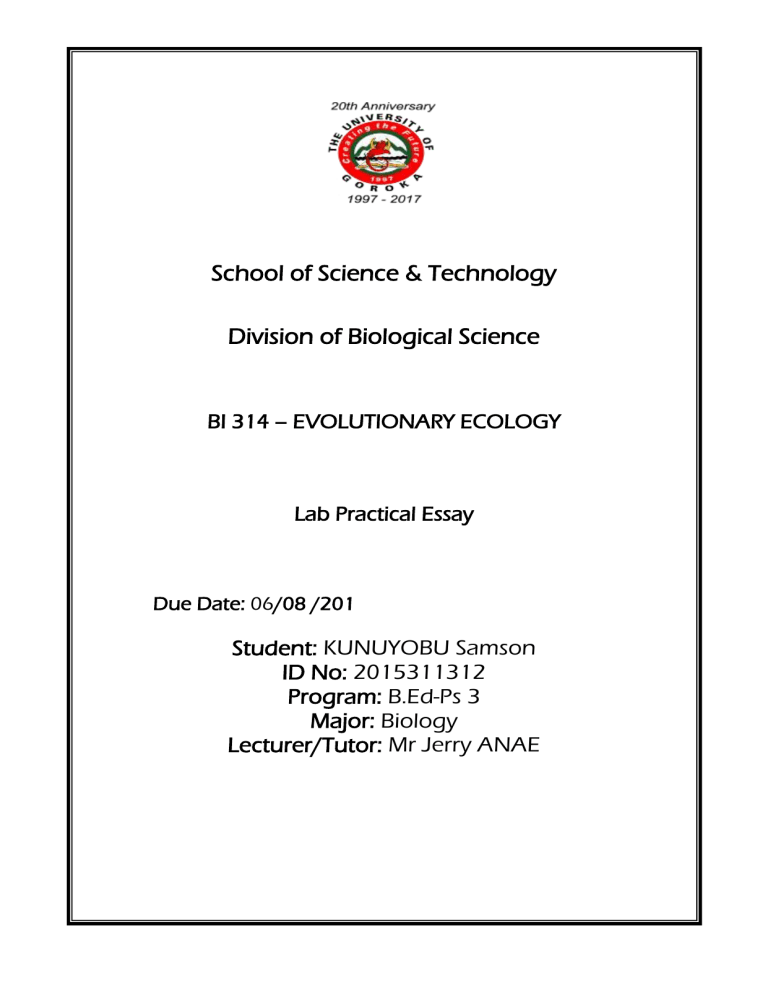
School of Science & Technology Division of Biological Science BI 314 – EVOLUTIONARY ECOLOGY Lab Practical Essay Due Date: 06/08 /201 Student: KUNUYOBU Samson ID No: 2015311312 Program: B.Ed-Ps 3 Major: Biology Lecturer/Tutor: Mr Jerry ANAE The Concept of the Anthropocene as a New Geological Epoch The earth’s planetary degradation caused by humans, such as species extinction, unsustainable farming, toxic waste, climate change, and the high level of carbon dioxide in the atmosphere and other environmental changes possess a new earth’s time scale, (Carey J, 2016). The term ‘anthropocene’ has brought an alarming scientific debate between environmentalists, ecologists and geologists in the world today. Crutzen P., (2010), states that the earth is no longer in the Holocene anymore since the earth’s geology has been changed by human activities. He popularised it in 2000 by stating that the earth is now in a new epoch. Crutzen P., (2000), described the earth’s condition now as the ‘Anthropocene,’ (‘’anthropo’’ means human and ‘’cene’’ means new) and he proposed the new epoch would be the ‘ANTHROPOCENE’ for the earth’s geological time scale. The planetary changes led many scientists to argue about a new epoch. In 2000, the Dutch atmospheric chemist, Paul Crutzen, popularised and put forward the concept of the ‘’Anthropocene’’ as a new geological time scale, (Stromberg J., 2013). There are several geologists and the professional organisations such as the International Geosphere-Biosphere Program (IGBP) (www.igbp.net) have debated about the anthropocene, whether to declare or not officially to declare as a new epoch, (Carey J, 2016). However, this essay favours the idea of Paul Crutzen. The anthropocene should be the next epoch for the earth’s geological time scale. Humans have caused mass extinction to plant and animal species on earth and caused greater environmental changes since the beginning of the industrial evolution, (Crutzen and Stoermer, 2000). In addition, humans have become the major driving force for the global changes, species extinction, high level of carbon dioxide in the atmosphere, and other planetary changes in the biophysical environment. Many countries are now experiencing strange weather patterns, rising sea level and other global environmental problems as a result of the human activities on earth. It is shown that the earth is going to another era. The geological evidence is not really necessary for the new epoch. The ecologists and environmentalists built up evidences for the concept of the anthropocene based on the impacts of humans towards the natural environments, (Olsson P.,et.al., 2017). Regardless of the final scientific decision about the epoch, the concept of the Anthropocene is a powerful and it guides our attention to the human-interactions toward environments or ecological innovations. Though the geologists and many stratigraphers argued and criticized the idea of anthropocene, it is undeniable impacts on the environment at the scale of the planet as a whole. It is so much clear that it should be a new geological epoch since many environmental issues have discovered today caused by the human interactions with the natural environment. I argued in this essay that we are living in the era of the anthropocene. It may be still powerful device which draws our attention to link the nature of global ecological problems today. REFERENCE LIST 1. Crutzen P and Stoermer EF(2010). Have we entered the Anthropocine? IGBPNewsletter. Retrieved from www.igbp.net 2. Stromberg J, (2013). What Is the Anthropocene and Are We in It? Retrieved from http:www.smithsonianmag.com 3. Crutzen PJ (2000). Geology of mankind. Nature 415(6867):23. 4. Carey J (2016). Are we in the “Anthropocene”? vol. 113. no. 15. Retrieved from www.pnas.org/cgi/doi/10.1073/pnas.1603152113 5. Olsson, P., M.-L. Moore, F. R. Westley, and D. D. P. McCarthy, (2017). The concept of the Anthropocene as a game-changer: a new context for social innovation and transformations to sustainability. Ecology and Society 22(2):31. Retrieved from https://doi.org/10.5751/ ES-09310-220231
